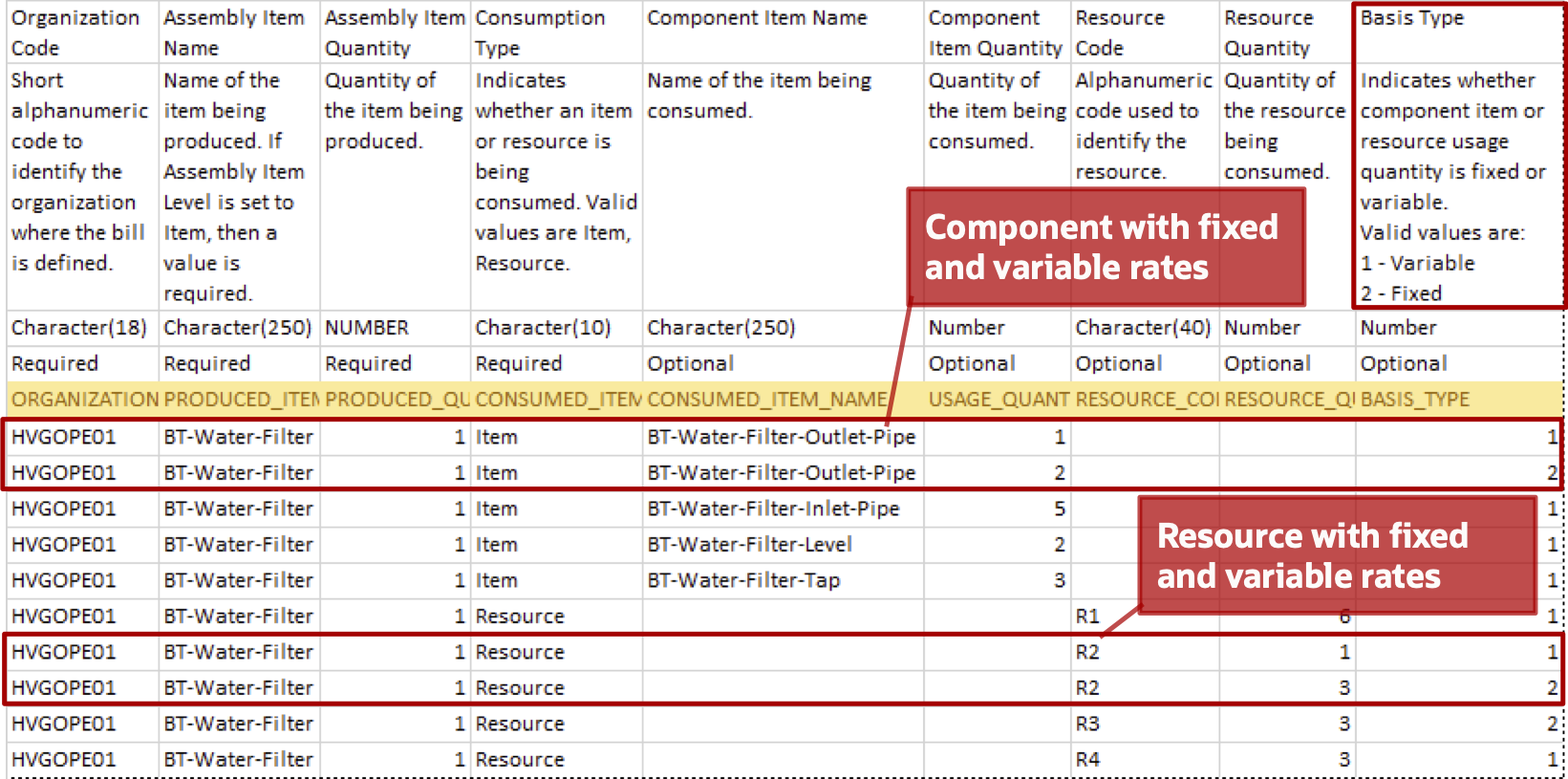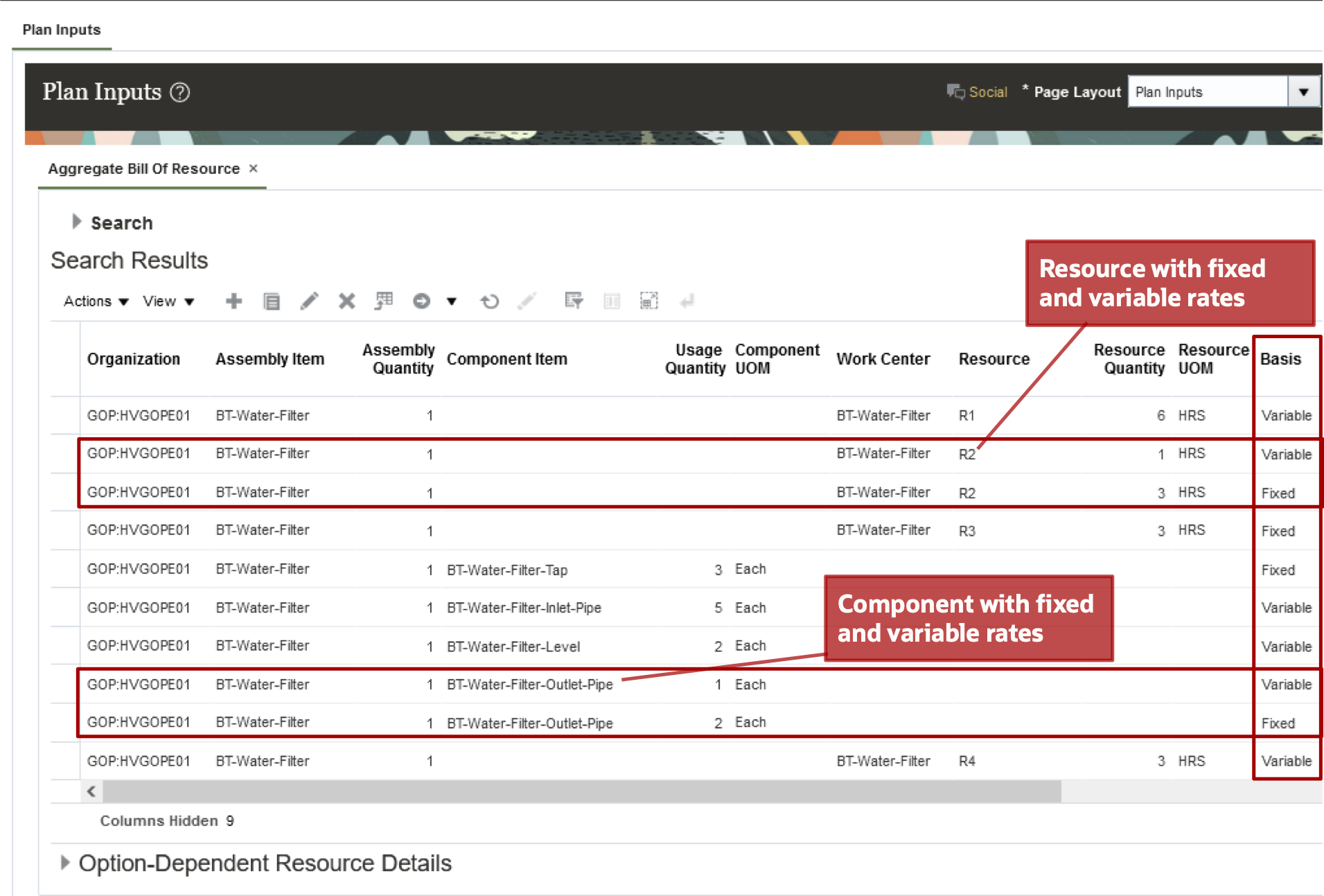Import Types and Rates of Consumption for Manufacturing Components, Materials, and Resources
Previously, you could configure fixed setup and variable cycle times for each manufacturing operation by collecting values from Oracle Manufacturing work definitions. If your organization doesn’t use Oracle Manufacturing, you can now update the types and rates of consumption through a file-based data import (FBDI) process as well.
Use the Supply Chain Planning Bill Of Resources FBDI template to load bills of resources for assembly items with components and resources that have fixed and variable usage quantities. The Basis Type column in the template indicates whether a component item or resource usage quantity is variable or fixed. Multiple instances of the same component or resource can be modeled with different basis type information in the bills of resources.

Supply Chain Planning Bills of Resources FBDI Template ScpBillOfResourcesImportTemplate.xlsm
After loading the data from files, you can review bills of resources in the Aggregate Bill of Resource table in the Plan Inputs work area.

Aggregate Bill of Resource Table in the Plan Inputs Work Area
Global Order Promising consumes the component and resource usage quantities by considering the basis type information defined in the bills of resources.
Steps to Enable
You don't need to do anything to enable this feature.
Tips And Considerations
- You can use the Create Bills of Resources scheduled process to generate bills of resources from routing and item structure data loaded from a legacy system. Global Order Promising uses the bill of resources to determine the quantities of the components and resources it needs to meet demand. See Create a Bill of Resources.
- You can load bills of resources data for implementations that don’t use Oracle Manufacturing.
- The Supply Chain Planning Bills of Resources FBDI template (ScpBillOfResourcesImportTemplate.xlsm) continues to support date effectivity for components and resources in assembly items.
- You can’t define components or resources with overlapping effective dates.
- You can define fixed or variable basis types for one or more instances of components and resources used in making a subassembly or an assembly item.
Key Resources
- See the Vary the Type and Rate of Consumption for Manufacturing Components, Materials, and Resources in the Bill of Resources feature readiness training, which is available beginning with update 24A for Global Order Promising on Oracle Cloud Application Update Readiness.
Access Requirements
Users who are assigned a configured job role that contains these privileges can access this feature:
- Perform Order Orchestration and Planning Data Load (MSP_PERFORM_ORDER_ORCHESTRATION_AND_PLANNING_DATA_LOAD_PRIV)
- Monitor Order Promising Work Area (MSC_MONITOR_ORDER_PROMISING_WORK_AREA_PRIV)
- View Bills of Resources (MSC_VIEW_BILLS_OF_RESOURCES_PRIV)
- Schedule Fulfillment Line (MSP_SCHEDULE_ORCHESTRATION_ORDER_FULFILLMENT_LINE_PRIV)
These privileges were available prior to this update.